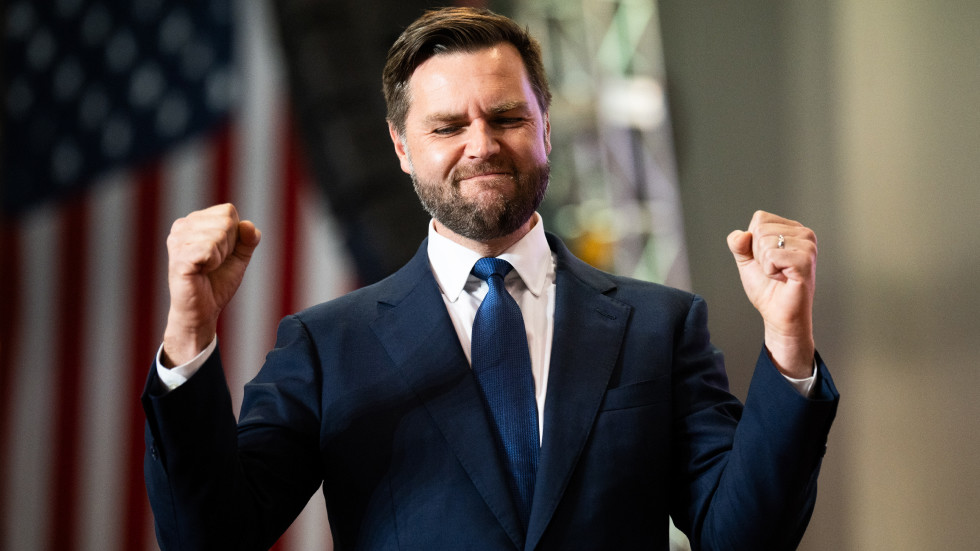In a recent debate, Republican Vice Presidential nominee J.D. Vance showcased a surprisingly civil and focused approach while engaging with his Democratic counterpart, Tim Walz. This debate marked a notable departure from the crass exchanges typical of the Trump era, where personal insults often overshadowed substantive discussions of policy. Instead, Vance and Walz exchanged ideas without resorting to the gutter tactics that had been a hallmark of Vance’s earlier political persona. His performance reflected a new strategy—one that involved crafting a relatable “caring conservative” image, diverging from the divisive rhetoric commonly associated with Trump. Notably, this new persona opened the door for potential bipartisan collaboration on certain issues, although Vance did not hold back in his criticisms of Kamala Harris and the administration’s record on economics and immigration.
Vance’s ability to present a version of “Trumpism with a human face” allowed him to articulate a vision that appeared coherent and inviting. Throughout the debate, he exhibited confidence and a relaxed demeanor, effectively distancing himself from some of Trump’s more controversial stances. However, when addressing issues related to the 2020 election and the January 6 riots, Vance struggled for credible defenses, leading to accusations from Walz regarding his evasive responses. Vance’s strategic smile while Walz spoke seemed to convey a sense of superiority, further underscoring his shift in persona. This transformation appears calculated to appeal to swing voters who might have been turned off by Trump’s past behavior. Despite Vance’s attempts at a more congenial approach, critics argue that this new façade is little more than political maneuvering in a climate where irrationality and anti-intellectualism are prevalent.
Vance emerged from the debate with a distinct edge, showcasing himself as a more palatable alternative to Trump, making him appear more electable than his mentor. Although he maintained praise for Trump during the debate, it was evident that he was promoting a sanitized version of the former president. The results of the debate raised questions about how Vance’s newfound persona would be received by Trump’s base, and how it might influence their political strategies moving forward. The dynamic at play during the debate seemed to indicate a potential shift within the GOP landscape, as Vance’s approach might resonate better with voters disillusioned by constant hostility in politics. Observers are curious about how this transformation will play out in the upcoming campaign, especially if Trump secures the presidency.
Walz, in response, appeared somewhat flustered and befuddled by Vance’s polished performance. His demeanor contrasted sharply with Vance’s composed and conniving portrayal, leading to a lack of effective engagement from the Walz camp. While Walz attempted to present his policies and advocate for his views, his inability to effectively challenge Vance’s pivot to a more amiable stance left him appearing wooden and unsure during the debate. An uncomfortable highlight was Walz’s admission regarding his previous misstatement about being in Hong Kong during a pivotal moment in history, which weakened his position and credibility. As the debate progressed, he seemed reluctant to confront Vance’s past extremist views, indicating a potential miscalculation in strategy.
The policy discussion throughout the debate fell short of being particularly enlightening. Vance’s suggestion of common ground on contentious topics such as abortion and gun control was met with some hesitancy by Walz, who struggled to navigate this new dialogue without cross-examining Vance’s past positions. Consequently, the debaters ended up reciting familiar positions regarding various international issues but failed to propose innovative solutions. Meanwhile, Vance soft-pedaled traditional Trump rhetoric around immigration, opting for a more toned-down version of the topic that strategically avoided previous excesses, illustrating a careful recalibration of his political messaging.
Overall, vice presidential debates typically have a limited impact on the electoral outcome, and the significance of this performance remains uncertain. However, Vance’s adept handling of the debate could potentially sway swing voters, making the November election more competitive. His polished presentation created the impression of a candidate who could appeal across partisan lines while standing aligned with Trump’s core messages. This raises the stakes for the election, as new dynamics may emerge that impact the composition and engagement of voter bases in a heated political landscape. As the race progresses, the degree to which Vance can maintain this persona, all while balancing the expectations of Trump’s base, will be closely monitored, particularly in the context of evolving electoral strategies.

